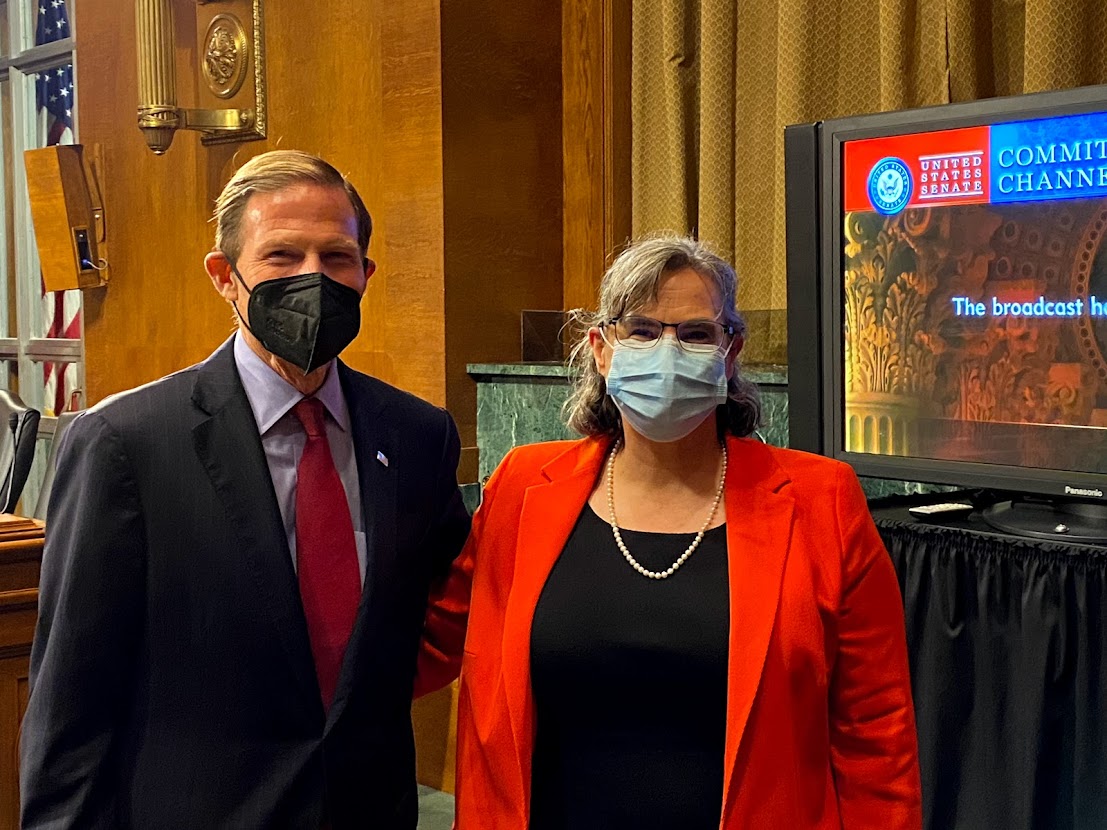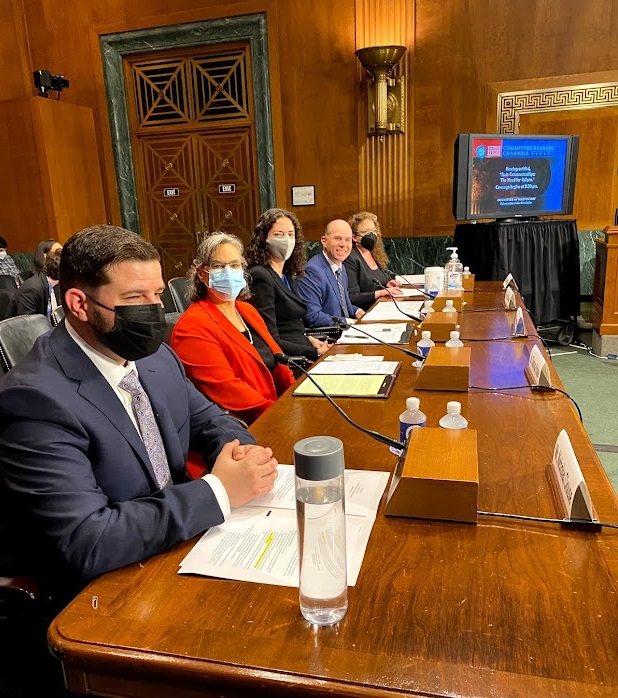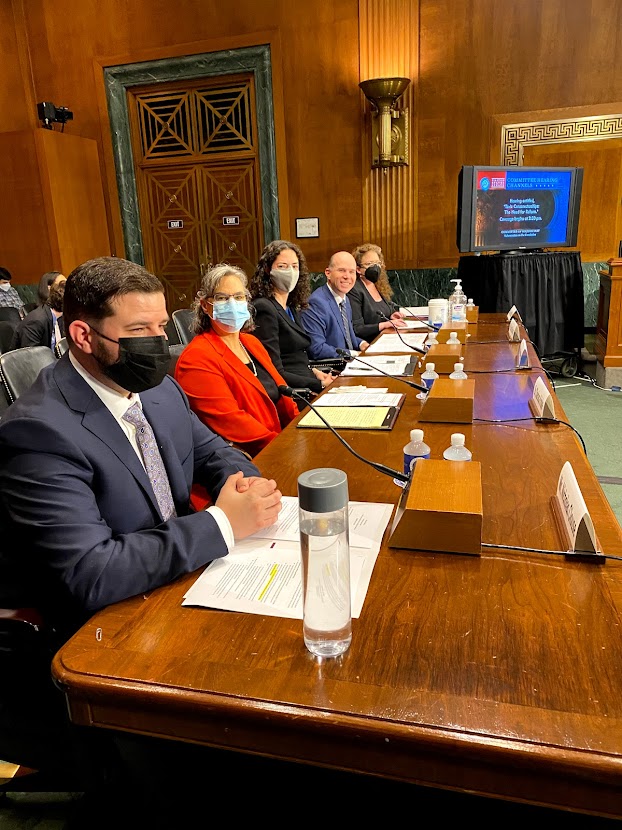

On September 28, 2021, three CommunicationFIRST Board members and four participants in our August 19 webinar on Guardianships and AAC Users submitted testimony for the US Senate Judiciary Subcommittee on the Constitution’s hearing titled “Toxic Conservatorships: The Need for Reform.”
The bipartisan hearing was jointly organized by Subcommittee Chairman Senator Richard Blumenthal (D-CT) and Ranking Member Senator Ted Cruz (R-TX).
CommunicationFIRST Vice Chair Dr. Clarissa Kripke gave live testimony about her experiences providing medical care to adolescents and adults with significant intellectual and developmental disabilities, most of whom have communication disabilities and few of whom are conserved. She testified, “that in my professional experience as a medical doctor and in my personal experience as a parent of a nonspeaking adult: 1. Conservatorship is not necessary to deliver high quality medical care. Conservatorship is not even helpful. This is true, even for people with the most complex disabilities. 2. Conservatorships do not make people safer or prevent abuse. In fact, they can be harmful by trapping people with disabilities and conservators in bad situations. 3. Supported decision-making works better and results in better healthcare decisions.”
You can watch an indexed and captioned recording of the full two-hour hearing, including Dr. Kripke’s oral testimony, courtesy of C-SPAN, here. Her full written statement for the record can be accessed here.
In addition to Clarissa, the other in-person witnesses were Zoe Brennan-Krohn from the ACLU; Morgan Whitlatch from Quality Trust for Individuals with Disabilities; Nicholas Clouse, an Indiana man who recently successfully terminated his guardianship; and David Slayton from the National Center for State Courts. Morgan was a panelist in both of CommunicationFIRST’s guardianship webinars. Written statements submitted by the in-person witnesses can be accessed here.
Two other CommunicationFIRST Board members, Tim Jin and Jordyn Zimmerman, submitted video and written testimony for the record.
You can watch Mr. Jin’s testimony here. His written testimony is here. Mr. Jin testified, “When a person is being conserved, they have fewer rights than somebody that is in prison. … Guardianship is not the answer. There are so many different options to maintain the safety of your loved ones.”
Ms. Zimmerman’s video testimony can be accessed here, and her written testimony is here. Ms. Zimmerman testified, “I have my own bank account. I vote. I choose my health providers. I hang out with my friends. And I choose what I want to do each day. Guardianship would limit any decisions I have the right to make about how I want to live, and is not a solution.”
Other people with disabilities impacted by guardianships and conservatorships also submitted video and written testimony; the National Resource Center on Supported Decisionmaking has compiled that testimony here.
In July, CommunicationFIRST joined with the ACLU and two dozen other civil and disability rights groups in filing an amicus brief in support of Britney Spears’ right to select her own attorney for her conservatorship proceedings. The judge agreed and granted Ms. Spears the right to choose her attorney.

